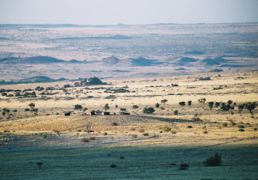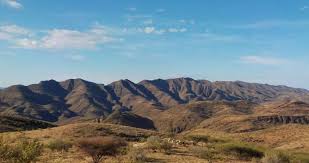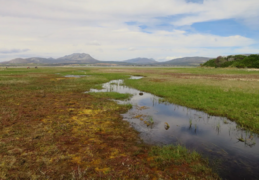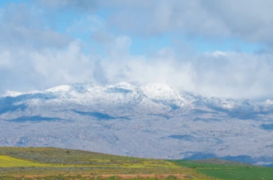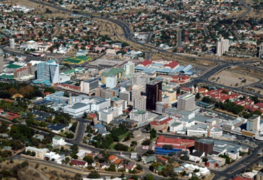Titechaxha
This article is a work-in-progress because it is incomplete and pending further input from an author. Note: The contents of this article are not considered canonical and may be inaccurate. Please comment on this article's talk page to share your input, comments and questions. |
Democratic Republic of Titechaxha | |
|---|---|
|
Flag | |
| Capital and largest city | Tibokro |
| Religion | Various Indigenous |
| Demonym(s) | Titechaxhan Chaxhan |
| Government | Republic |
• President | M'Nele Tytole |
• Vice President | Peleba Kolouda |
| First Congress | |
| Establishment | |
• Sovereign Recognition by League of Nations | 1971 |
| Population | |
• Estimate | 38,920,144 |
| GDP (nominal) | estimate |
• Total | 1,111,831,753,648 |
• Per capita | 28,567 |
| Currency | Cronan lira |
Titechaxha, officially the Cronan Democratic Republic of Titechaxha, is a country in Crona. It shares land borders with Arcerion, New Archduchy, Kelekona, Varshan, Chakailan and Telonaticolan. Its Eastern Border is the Odoneru Ocean. Its largest city is the capital, Tibokro.
Titechaxha is one of the least developed nations in Crona, although recent investments by Occidental and Coscivian companies have started to contribute to a growing GDP and rising Human Development Index. Titechaxha has been inhabited since ancient times by a number of tribes, notably the Dan-ton and Himabe peoples as part of the broader North Songun Civilization. Since the end of the North Songun Civilization, Titexchaxha's population has been a mixture of its existing two tribes, as well as a refugee diaspora from the settlement and colonization of Arcerion. With a population of 38,920,144 citizens and permanent residents, it is less populated than many other contemporary countries in Crona, such as Kelekona or Arcerion.
Titexchaxa was never settled by Occidental powers due to its lack of natural resources, as well as the threat posed by Varshan during the Cronan Colonial Era of the 17th-19th centuries. It remained a semi-sovereign state throughout the 1600s and 1700s under Varshan as a stable tributary state, notionally under the control of some of the upper caste of Varshani society, however it was a functioning sovereign state from the turn of the 20th century until modern day with less and less Varshani involvement or control. The League of Nations recognized Titechaxha as an independent nation in 1971 as an independent state, and the Democratic Republic sent a representative for the 1972 legislative sitting. Titchaxha has strained diplomatic relationships with Arcerion and the New Archduchy, owing to its indigenous roots and anti-Occidental views and recent history from both the 1988 Civil War, as well as its participation in the Arcer Bush Wars on the side of the Indigenous Coalition.
Titechaxha is current an impoverished, semi-stable democracy. Agriculture, tourism, and fishing remain the major industries. There exists a limit mining industry in the Northumbraeland Mountains, as well as some mineral extraction in the Western Highlands, although this remains dwarfed by the Arcer economy to the South.
Etymology
Geography
-
The Central Plateau or Grass Sea in central Titechaxha.
-
Western Highlands of Titechaxha.
-
The Coastal Lowlands that spread along the length of Titechaxha's Odoneru Coastline.
-
The country borders the Northumbraeland Mountains with Arcerion
-
Tibokro, the largest urban centre and capital city of Titechaxha.
At XYZ km² Titechaxha is one of the smaller countries in Crona. Being situated between Arcerion, Kelekona, and Telonaticolan, it lies in a natural basin with few rivers or inland waterways. Titechaxha is generally divided into four major geographical regions, the Western Highlands, Central Plateau, Coastal Lowlands, and the Northumbraeland Mountains. Each of these areas has slightly varied geographic features and plant/animal life.
The Western Highlands represent the area that stretches from the tri-border area with League-occupied Varshan and Kelekona, up to the border with Telonaticolan. It is in this point where the highets mountain, Mount Yorontza lies, near the tri-border area with an elevation of 2,416 metres (7,926 ft). The Central Plateau is a vast expanse of wildland and grassland that spans the breadth of Titechaxha, from the Arcer to Telonaticolan border. It is the characteristic central geographic feature of Titexchaxha and the one it is most known for, locally the Central Plateau is referred to as the 'Grass Sea.' The area sees a mixture of climates due to winds coming off of the Western Highlands and Western-blowing winds coming off of the Odoneru Ocean.
The Coastal Lowlands are centralized around the cities of Marayahi (in the North) and Noniaka (in the South). These areas represent another biome, that being tropical coastal areas rich with vegetation, wildlife, as well as tropical wetlands. Much of the well-irrigated agriculture in Titexhcaxha comes from these regions. This area receives the greatest amount of precipitation, and is frequented by tropical storms coming off of the Odoneru Ocean. The Coastal Lowlands is home to thousands of species of plants and hundreds of wildlife species, and the stable precipitation and the high volume of rain make it fertile ground for both mammal and reptile species. The Coastal Lowlands also have one of the largest unexplored offshore marine resource areas in Crona.
In the South, the Northumbraeland Mountains extend into the Southeastern portion of Titechaxha, and are shared with the New Archduchy and Arcerion. This is also the start point of two major rivers, the North Innis and Leigh Rivers, that flow through Arcerion and into the Innis River Basin in the Malentine Sea.
Western Highlands
Northumbraeland Mountains
North Innis and Leigh Rivers
Central plateau
2x Bays
Coastal lowlands around Marayahi
History
North Songun Civilization
In the 1590s, Varshan established Titechaxha as a new stable tributary state.
Dependency of Varshan
Formation of Titechaxha
Modern period
20th century semi-independence
Varshan controls dropping
some investment and modern port construction
emigration from refugees
small economic boom
sits out of the 1GW and 2GW
1983 Coup
Coup supported secretly by Arco
1998 Civil War
reinstallation of pro-socialist government
2001 Presidential Abdication
arco forced
Final War of the Deluge
Government
Executive
Presidential Palace and such
Legislature
congress and that's it
Local governance
municipal and state
Culture
Cuisine
Demographics
Linguistic Demographics
Religious Demographics
Economy
Poor, but not bad
Military
Sham defense forces with aging soviet equipment
